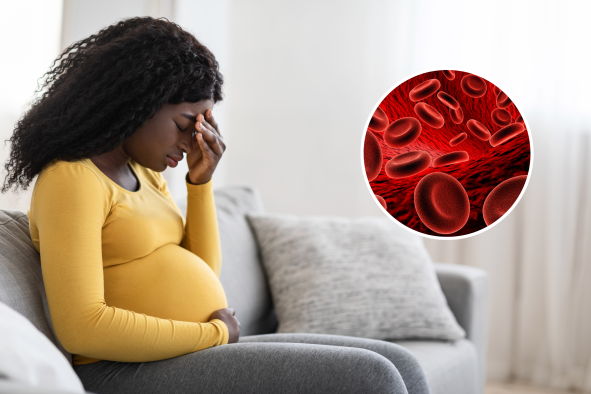Women who lived through two major earthquakes in Turkey may have experienced physical symptoms in the form of disruptions to their menstrual cycles, according to a recent study.
The menstrual cycle is comprised of hormonal fluctuations that follow a roughly monthly rhythm, signaling bleeding at its start and the release of an egg halfway through; a regular cycle is sometimes considered an indicator that a woman is generally healthy.
Irregularities—when periods happen too frequently, infrequently, with too much blood or pain, or when they stop altogether—can significantly disrupt a woman's daily life and lead to fertility problems.
"Traumatic events like earthquakes can disrupt not only physical but also hormonal and psychological balances, which can directly affect women's reproductive health," said corresponding author of the study, Sibel Kiyak of Necmettin Erbakan University, Turkey, in a statement.
Menstrual irregularities seemed to become more common among a group of women after they were affected by two consecutive major earthquakes.
The 309 study participants were women aged 18 to 49 who lived in the 11 regions declared as disaster areas after earthquakes occurred on February 6, 2023, in Kahramanmaraş, Turkey.
The earthquakes reached 7.8 on the Richter scale and resulted in more than 50,000 deaths, more than 110,000 injuries, and the collapse of nearly 38,000 buildings in the province.
The women completed online forms nine months after the natural disaster, indicating both physical and mental side-effects of the event.
The results showed that menstrual irregularities increased significantly before and after the earthquake: 14.3 percent of the women had irregular cycles before the earthquakes; and 44.8 percent reported irregularities afterward.
That included 14.6 percent of women who said their periods became infrequent after the earthquakes; 12.3 percent who said they had heavy bleeding each month; 10.7 percent who said their periods had become overly frequent; and 10.7 said they bled in between their periods.
A small number of the women—1 percent—said their periods had stopped altogether, indicating they might be infertile at that time.
The scientists found a link between these irregularities and the trauma that the women experienced, finding 22.7 percent of them had post-traumatic stress disorder.
PTSD is a psychiatric condition that is sparked by a traumatic incident—unlike complex PTSD, which develops from frequent or prolonged trauma over time—and can cause feelings of fear, panic, helplessness, and alertness, avoidant behavior, and flashbacks of the event.
The scientists found that women with more PTSD symptoms, or who had experienced more trauma, were likelier to report irregularities in their menstrual cycles.
Other risk factors included chronic diseases, such as obesity, heart disease, type 2 diabetes, arthritis and anemia. Women with chronic diseases were approximately twice as likely to say they had irregular cycles.
Smokers, too, had about double the chance of irregular cycles, and hormonal contraceptives were also associated with menstrual irregularities.
Approximately 16 percent of the women included in the study were using hormonal or permanent contraceptive methods, which could disrupt their cycles.
However, no women were included who were pregnant, had recently given birth, were breastfeeding, were menopausal, had a condition that could affect their reproductive health—such as polycystic ovarian syndrome, endometriosis or hyperthyroidism—or had had previous gynecologic operations or diagnoses of mental illness.
The study authors also did not compare their group with women who had not experienced the earthquake, and they relied on the females reporting on menstrual cycles that happened months ago, so they could not definitively say that this increase in irregularities was causal.
Additionally, the group may not have been representative of all the women who were affected by the earthquake, as the study's setup required all participants to be literate and have an internet connection.
However, the authors found an association between the earthquakes and menstrual irregularities, and proposed that trauma had influenced the hormones, and therefore reproductive health, of women affected.
The authors said their study could help build a better understanding on how women were affected by natural disasters, and that this information could be used to make post-disaster interventions more effective.
This study was published in the scientific journal Brain and Behavior, by Wiley.
Do you have a tip on a food story that Newsweek should be covering? Is there a nutrition concern that is worrying you? Let us know via science@newsweek.com. We can ask experts for advice, and your story could be featured in Newsweek.
Reference
Kiyak, S., Batı, S. (2024). The relationship between menstrual cycle pattern and posttraumatic stress in women following the 2023 earthquake in Turkey, Brain and Behavior 14(9): e70034. https://doi.org/10.1002/brb3.70034
Disclaimer: The copyright of this article belongs to the original author. Reposting this article is solely for the purpose of information dissemination and does not constitute any investment advice. If there is any infringement, please contact us immediately. We will make corrections or deletions as necessary. Thank you.



